Spanning 2.2 million acres across Wyoming, Montana, and Idaho, Yellowstone National Park boasts the world’s largest concentration of geysers, stunning hot springs, mud pools, and other geothermal landscapes, while also attracting tourists with its wide variety of wildlife.
This park is a haven for outdoor enthusiasts, photographers, and anyone looking for an unforgettable encounter with nature’s splendor. However, with such a colorful array of attractions, determining the best time to visit Yellowstone can be a headache.
This guide will provide you with relevant knowledge to help you plan your dream Yellowstone adventure, taking into account factors such as weather, wildlife viewing, and crowd control.
✨Check our Yellowstone Early Discount to tour all the best attractions with amazing deals.
What is the Peak Season in Yellowstone
Yellowstone experiences a surge in visitors during the summer months, typically from June to August. This period boasts the warmest weather, with average highs reaching the pleasant 70s Fahrenheit (21°C). With most roads and visitor centers open, you’ll have unrestricted access to explore the park’s iconic features. However, this popularity comes with a price: expect larger crowds, especially around popular attractions like Old Faithful and Grand Prismatic Spring. Finding lodging and navigating park roads can take longer due to increased traffic.
During the peak season, June might be the sweet spot compared to July and August, offering pleasant temperatures with slightly fewer crowds.
What is the Best Time to Visit Yellowstone
The “best” time to visit Yellowstone depends on your priorities. If tranquility and a more intimate Yellowstone experience are what you want, consider venturing during the shoulder seasons: late April to May and September to early October.
While some higher-elevation roads might be temporarily closed during early spring and late fall, the majority of the park remains accessible. Most importantly, you’ll encounter significantly fewer crowds, allowing you to fully immerse yourself in Yellowstone’s magic.

However, if you have a preferred activity or an experience you want to have in Yellowstone, the answer may vary again, for example:
Best time to visit Yellowstone for wildlife viewing: Witnessing Yellowstone’s abundant wildlife is a highlight for many visitors. Spring (late May to June) and fall (September to October) offer prime opportunities.
Best time to visit Yellowstone for summer activities: If you prioritize warm weather, extended daylight hours (perfect for long hikes), and access to all park facilities, summer (June-August) remains the most suitable option.
Best time to visit Yellowstone for photography: Photographers seeking captivating landscapes will find spring and fall particularly rewarding. Spring’s vibrant wildflowers and snow-capped peaks create a picturesque backdrop. Fall explodes with fiery foliage, offering a dramatic contrast to the geothermal features. Cooler temperatures also mean less haze in the air, resulting in sharper photographs.
Find Your Perfect Yellowstone Season
While summer reigns supreme in terms of comfortable temperatures, Yellowstone’s splendor unfolds throughout the year. Let’s talk about the unique advantages each season offers:
Spring (Mid-March to Mid-June)
Fewer crowds paint a serene picture of Yellowstone awakening from winter. Witness vibrant wildflowers carpeting the meadows and witness baby animals taking their first steps.
Pros: Lush meadows bloom with wildflowers, waterfalls cascade with snow-melt, and wildlife emerges with renewed energy. This shoulder season offers mild temperatures and fewer crowds compared to summer, making it ideal for a peaceful exploration.
Cons: Some roads and higher-elevation areas may still be inaccessible due to snow. Be prepared for unpredictable weather with the possibility of rain and snow showers.
Best for: Wildlife viewing (especially baby animals!), wildflower photography, avoiding crowds.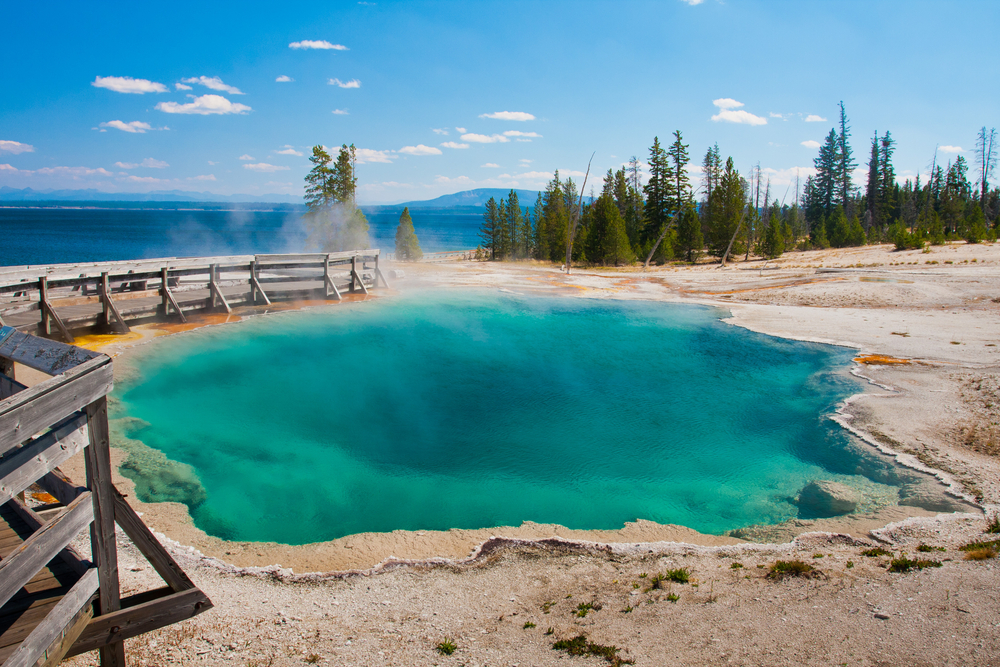
Summer (June to August)
This is the peak season, and for good reason. Summer beckons with warmest weather and extended daylight hours, offering access to the full Yellowstone experience.
Pros: Enjoy warm, sunny days perfect for exploring the park’s vast network of trails. All roads and visitor centers are open, offering access to all major attractions.
Cons: Brace yourself for crowds, particularly around iconic sights like Old Faithful. Lodging and camping reservations fill up quickly, so plan well in advance. Afternoon thunderstorms are common.
Best for: Hiking, camping, enjoying all park facilities, ranger-led programs.
Fall (September and October)
Shoulder season magic unfolds in autumn. The crowds thin considerably, translating into shorter wait times and a more peaceful atmosphere. Fall foliage paints the landscape in fiery hues of red, orange, and yellow, creating a photographer’s paradise.
Pros: The crowds begin to thin, and the landscape transforms into a photographer’s paradise. Aspens blaze with fiery colors, creating a breathtaking backdrop for iconic landmarks. Wildlife viewing is excellent as animals prepare for winter.
Cons: Some higher-elevation areas may start to close due to snow by late October. Daytime temperatures can be pleasant, but nights turn increasingly chilly.
Best for: Wildlife viewing (elk rutting season!), fall foliage photography, comfortable hiking temperatures with fewer crowds.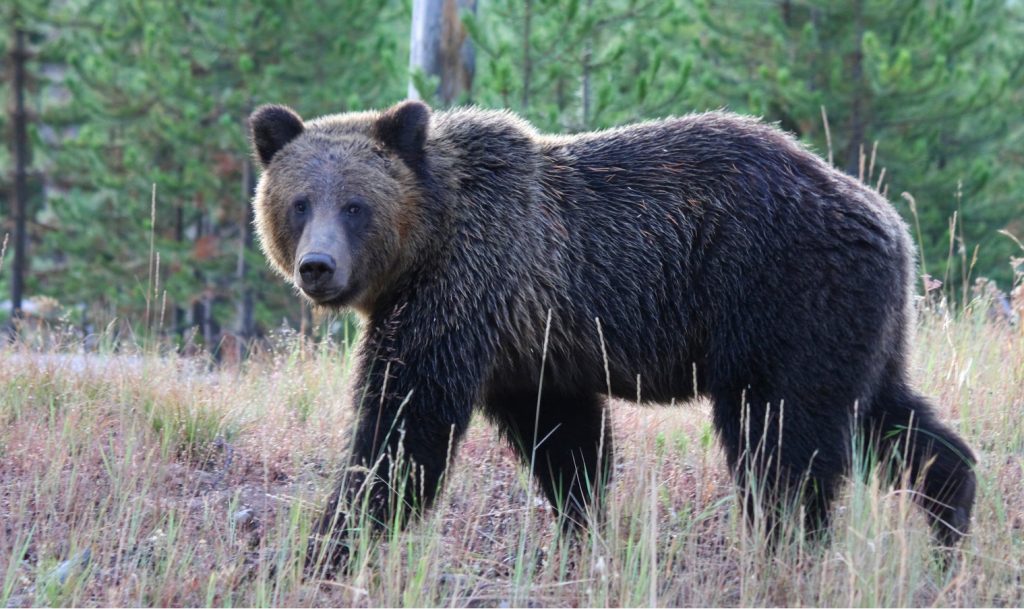
Winter (November to Mid-March)
Yellowstone transforms into a winter wonderland, cloaked in a pristine blanket of snow. Geothermal features stand in stark contrast against the snowy backdrop, creating a truly magical scene.
Pros: Witness dramatic landscapes blanketed in snow, with steaming geysers creating a mystical contrast. Explore the park on snowshoes or take a guided snowcoach tour. Visitor numbers plummet, offering a chance to experience the park in complete solitude.
Cons: Most roads and facilities close for the season, with limited access to the park’s interior. only the park’s developed areas are accessible by snowcoach, snowmobile, or cross-country skis. Temperatures are frigid, and blizzards can occur.
Best for: Unique winter activities, solitude, and a completely different perspective of Yellowstone.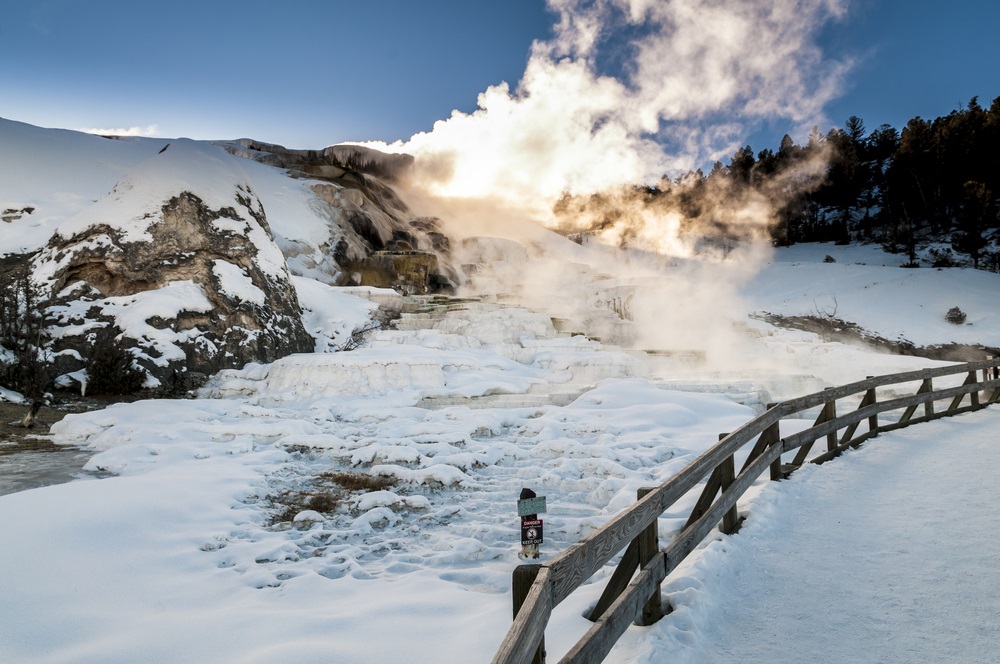
How to Get the Best Yellowstone Experience
Deciding on the best time to visit Yellowstone is just the first step. Here are some additional tips to optimize your trip:
Avoiding crowds:
If dodging crowds is a priority, aim for shoulder seasons (spring and fall) or even the quieter pockets of winter. Consider visiting during the week instead of weekends, and plan to arrive at popular attractions early in the morning or later in the afternoon to avoid peak crowds.
Accommodation options:
Yellowstone offers a variety of lodging options, from in-park lodges to gateway towns outside the park. Note that lodging options within the park book up quickly, especially during peak season. Reserve your accommodations well in advance, particularly if you’re traveling during the summer months. Consider nearby gateway towns like Cody, Wyoming; West Yellowstone, Montana; or Gardiner, Montana, for alternative lodging options..
Creating the perfect itinerary:
Yellowstone National Park is vast, so planning is key. Research the areas you’d like to explore, decide on your priorities (wildlife viewing, geothermal wonders, hiking, or photography?), and factor in travel time between your must-see sights. Consider purchasing a park pass or Yellowstone tour package in advance, especially during peak season.
Prepare for the elements:
Yellowstone’s weather can be unpredictable, even during the summer months. Pack layers of clothing suitable for varying temperatures, rain gear, and sturdy footwear. Sunscreen and sunglasses are year-round essentials, and a hat is recommended for sun protection and warmth.
Frequently Asked Questions
How many days are enough for Yellowstone?
The ideal amount of time to spend in Yellowstone depends on your exploration style and interests. For a whirlwind tour hitting the major highlights, 2-3 days might suffice. However, to fully immerse yourself in the park’s wonders and explore diverse areas, consider allocating 4-5 days or even longer for a truly in-depth exploration.
During what month do most people visit Yellowstone?
July is the peak month for visitation in Yellowstone National Park, attracting the most significant crowds. June and August are also popular choices due to the warm weather and extended daylight hours.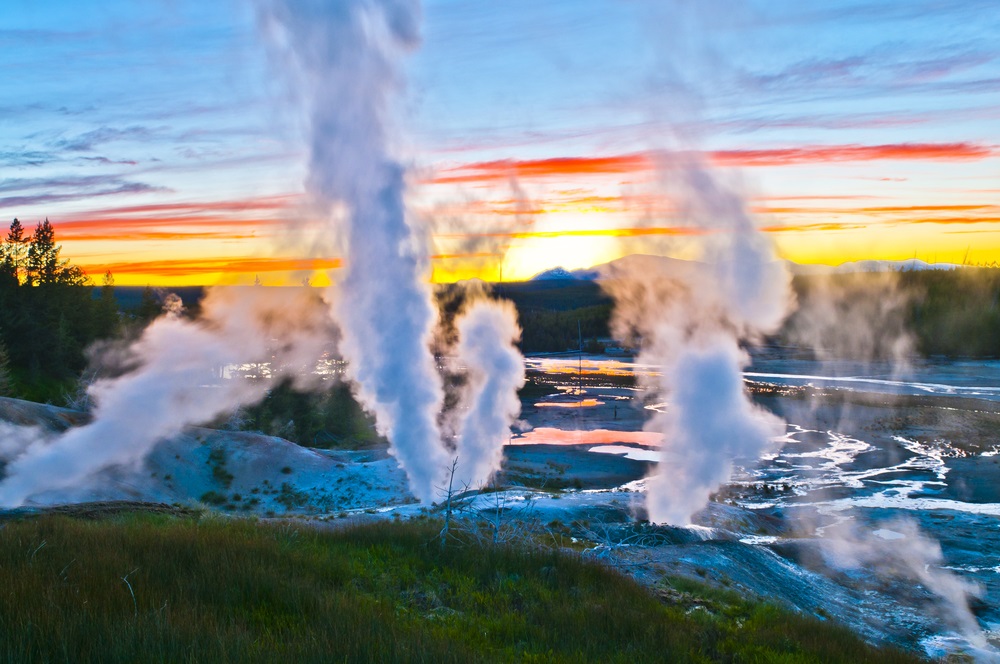
Where should I stay when visiting Yellowstone National Park?
There are various lodging options available within and around the park, including hotels, lodges, campgrounds, and vacation rentals. The best option depends on your budget, travel style, and desired location.
When should I go to Yellowstone to avoid crowds?
The shoulder seasons (late April-May and September-early October) offer a significant reduction in crowds compared to the peak summer months. You’ll still encounter visitors, but the overall experience will be much less congested. For true solitude, consider venturing to Yellowstone during the off-season (mid-November to March). However, be prepared for limited accessibility and extremely cold temperatures.
By understanding the unique characteristics of each season and following these helpful tips, you can craft the perfect Yellowstone adventure tailored to your preferences.
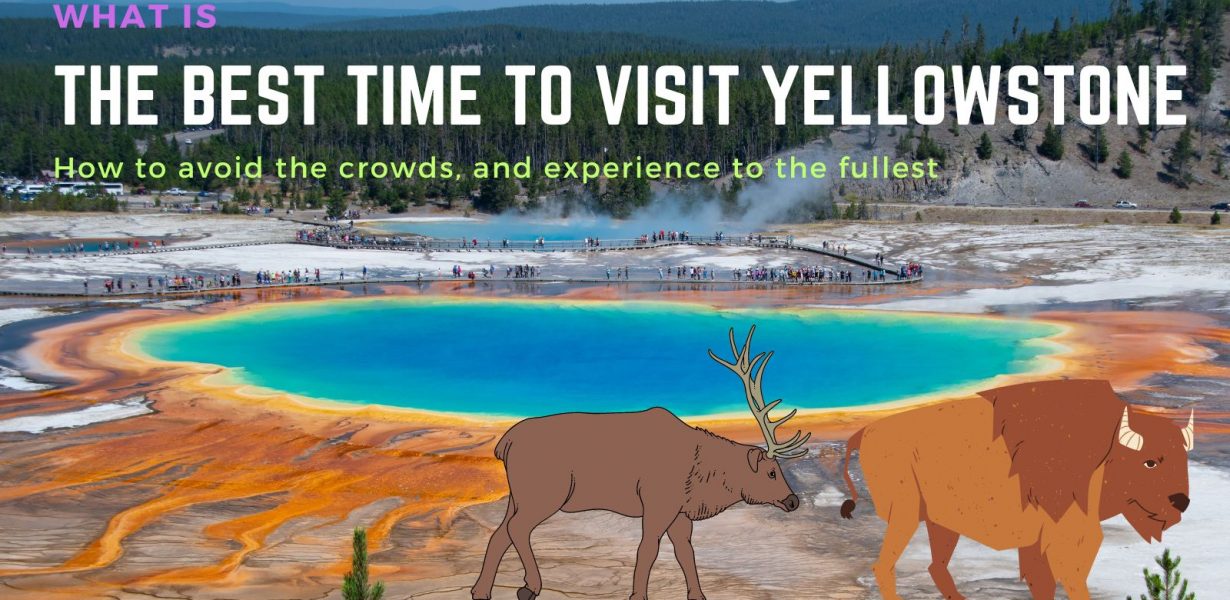
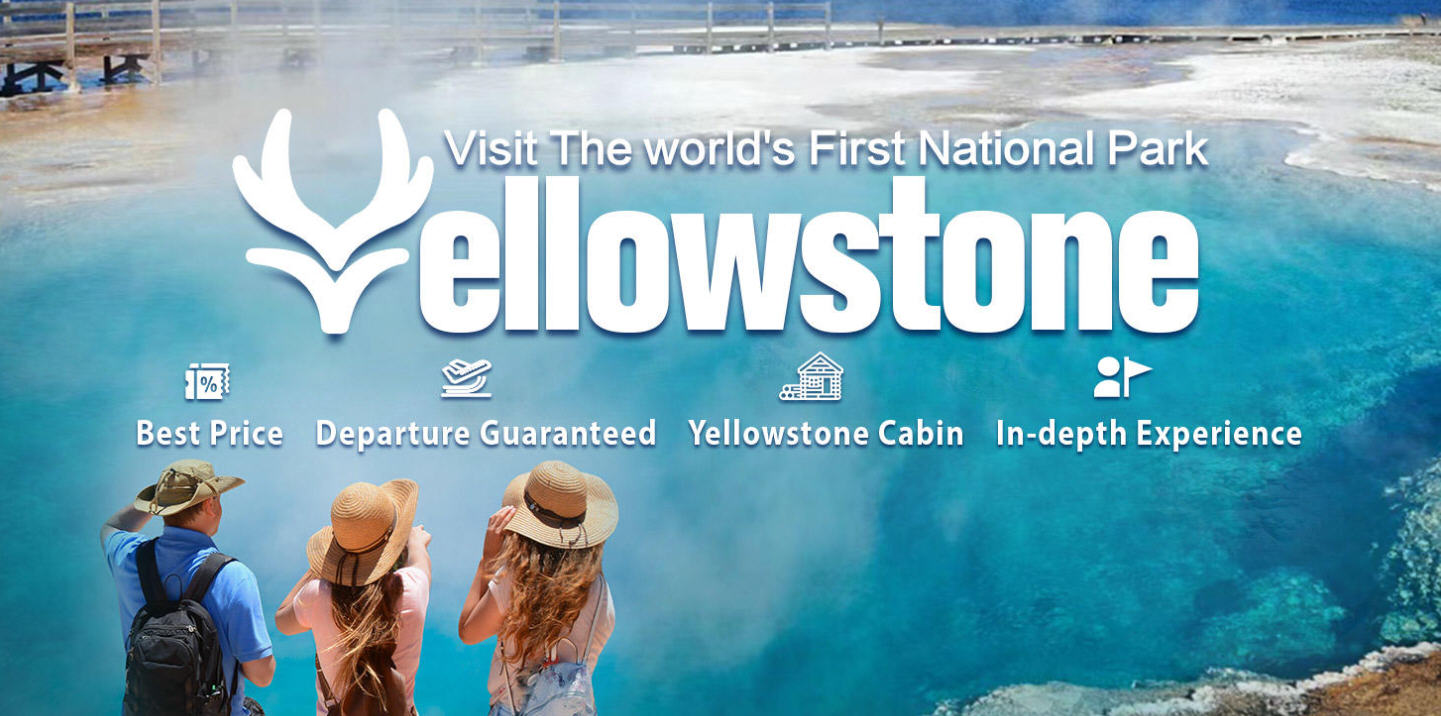





There are no comments.